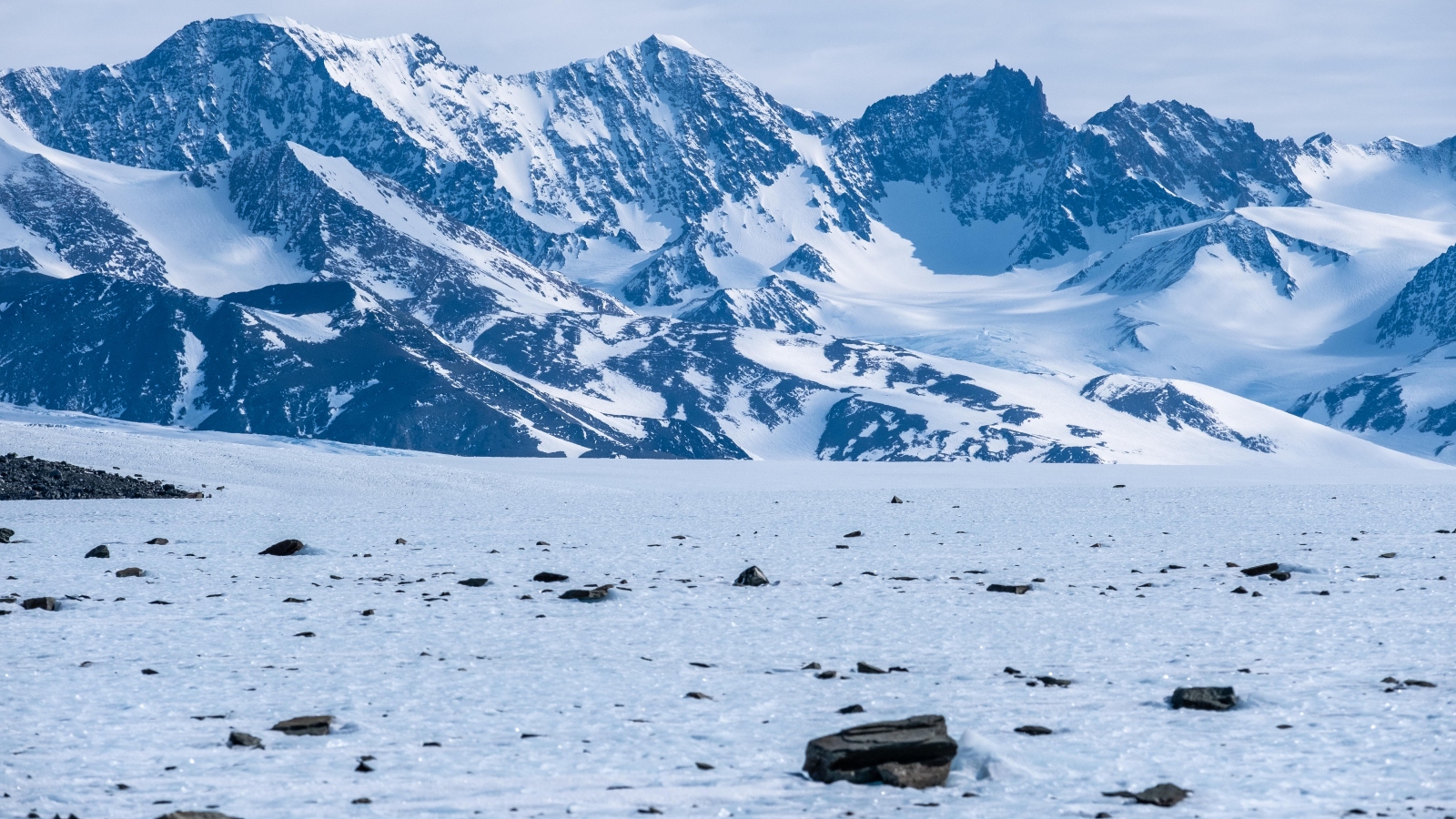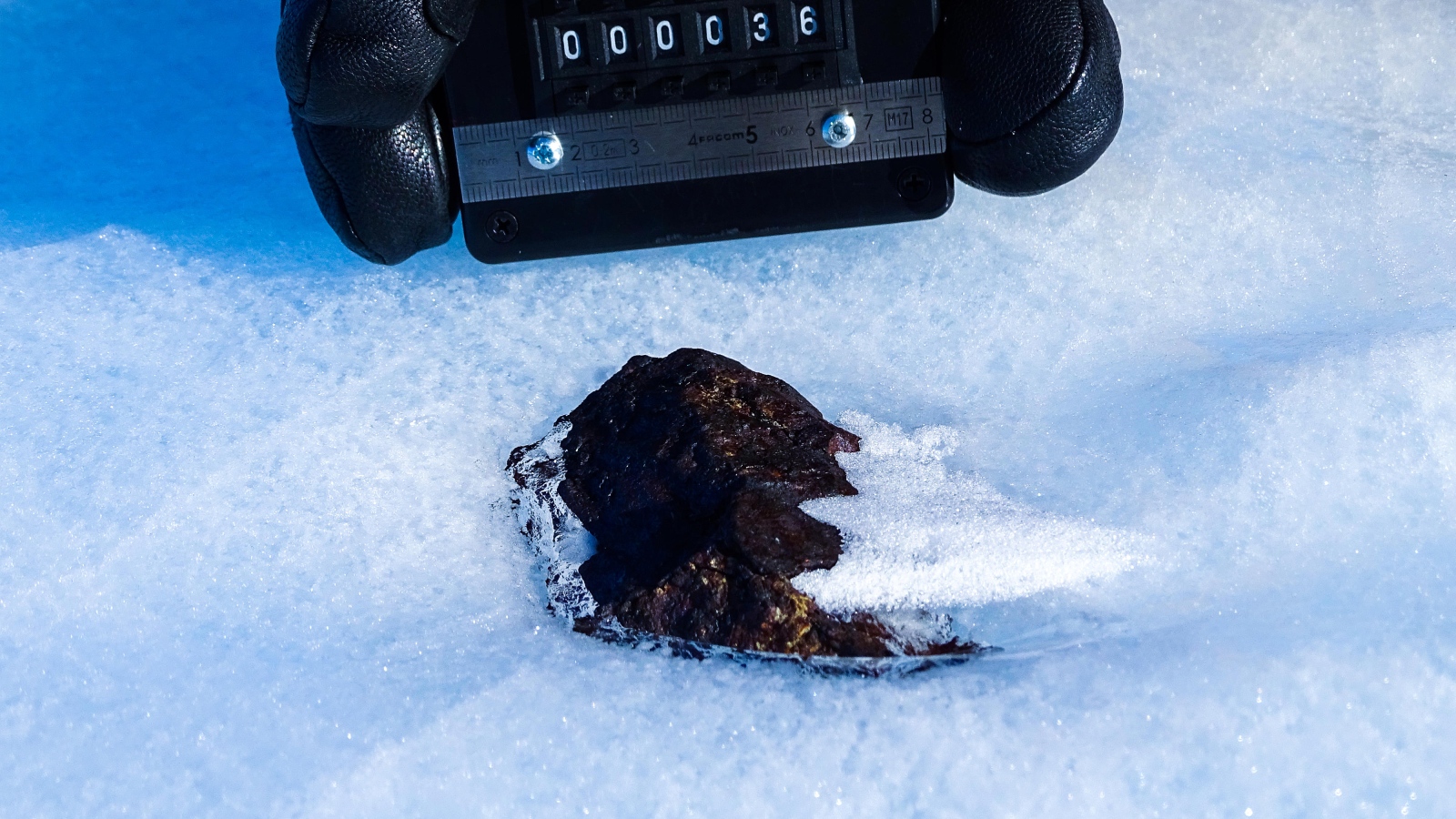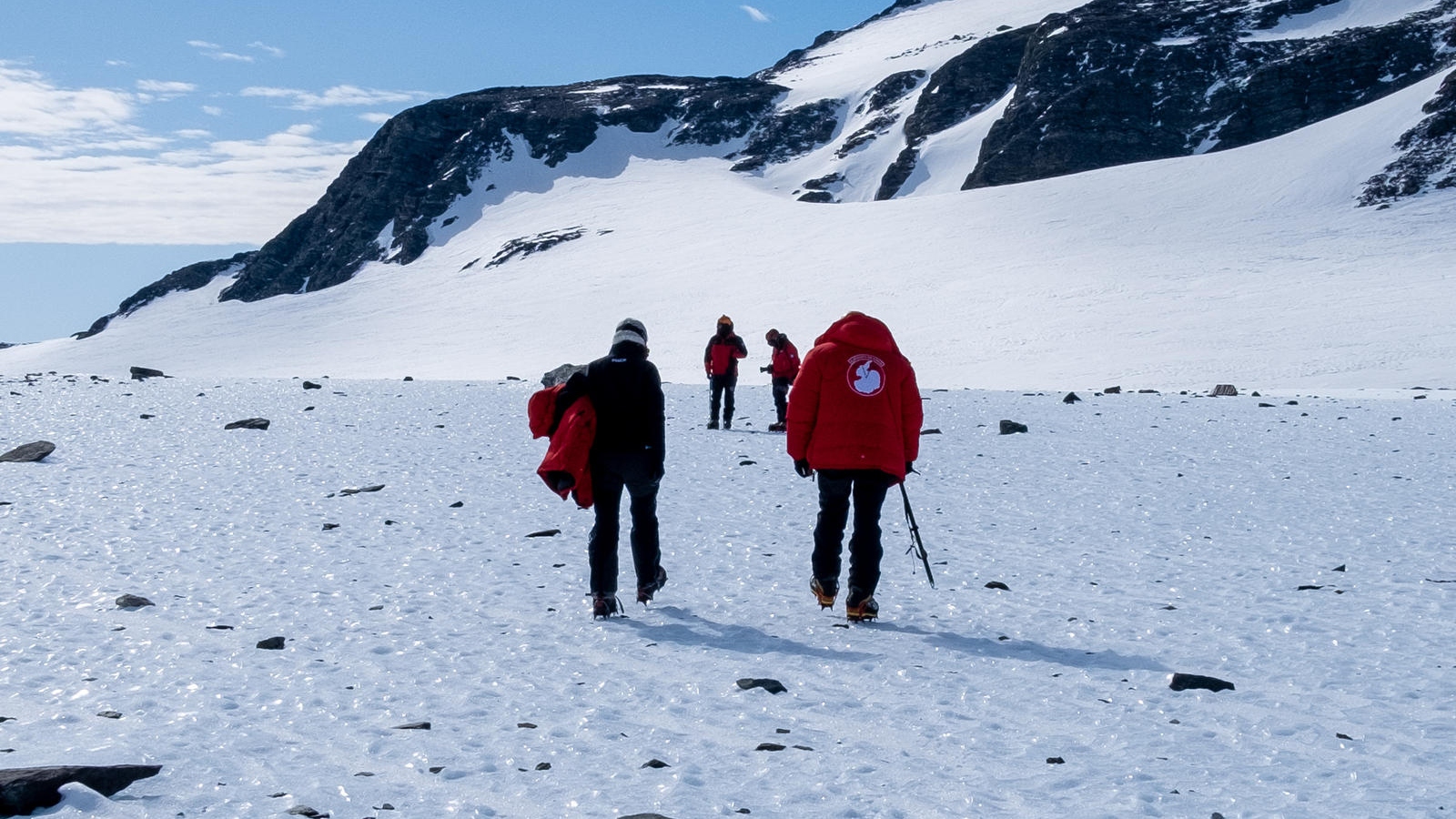
Hundreds of thousands of pristine meteorites are currently littered across, or just below, Antarctica's icy surface. But most of these space rocks could be lost forever over the next few decades as they sink further into the ice due to rising temperatures, a new study suggests.
That means we need to step up our efforts to find them before they disappear for good, the study authors argue.
Antarctica has been bombarded by meteorites for millions of years. Most of these space rocks have already sunk deep into the ice, never to be seen again. However, in certain parts of the continent, known as "blue ice areas," trapped meteorites are freed from their icy prison as wind and sunlight strip away the top layers of frozen water. Some of these meteorites may have been trapped there for tens of thousands of years.
Antarctica's blue ice areas are, therefore, some of the best places in the world to hunt for meteorites. There are about 600 of these areas in Antarctica, which cover around 1% of the continent's surface area.
Around 50,000 meteorites have already been found in Antarctica, which is around 60% of known meteorites ever collected worldwide. Most of these space rocks are less than an inch in diameter but some are much more massive. For example, in January 2023, researchers discovered an Antarctic meteorite weighing a whopping 17 pounds (7.7 kilograms) — one of the heaviest space rocks ever found on the continent.
Regardless of their size, analyzing these space rocks can help researchers uncover secrets about the origin and evolution of the solar system. Antarctic meteorites are especially useful to scientists because they are well preserved in the ice. Most meteorites that land in other regions quickly become contaminated by minerals, microbes or people after they hit the ground.
Related: How many meteorites hit Earth every year?

However, just because these meteorites lie at the surface doesn't mean they stay there forever. Due to their dark color, the space rocks soak up sunlight, which heats them up. Normally, this wouldn't be a problem. But at high surface air temperatures, this warming may melt the surrounding ice and cause meteorites to sink below the surface.
In the past, this melt would have been very rare. But with rising global temperatures due to human-caused climate change, meteorites are sinking much more often than before.
In the new study, published April 8 in the journal Nature Climate Change, researchers used machine learning — a form of artificial intelligence — to predict how many meteorites could be lost as a result of global warming.

The team's model estimates that there are likely up to 850,000 meteorites on or near the surface of blue ice areas in Antarctica.
At current temperatures, the researchers suspect that as many as 5,000 Antarctic meteorites are already sinking out of reach every year. Meanwhile, researchers find fewer than 1,000 meteorites across the continent every year, the team noted.
As temperatures increase further in the coming decades more meteorites will start to sink. Without any further warming, roughly a quarter of meteorites could be lost by the end of the century, researchers wrote. But in the most extreme warming scenarios, three-quarters could be lost, they added.
As further warming is guaranteed unless we immediately stop producing greenhouse gases, time is therefore running out to scoop up these space rocks and "preserve the information that each additional sample contains," the researchers wrote.







